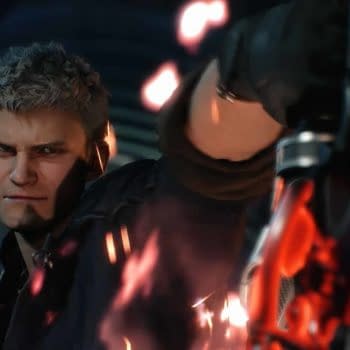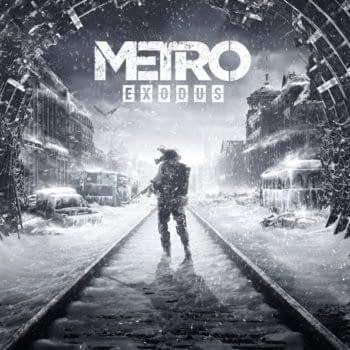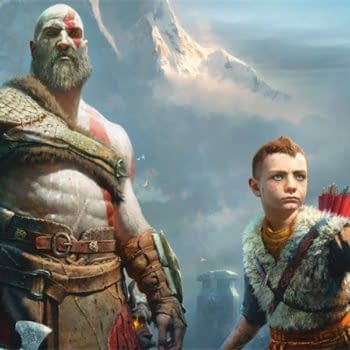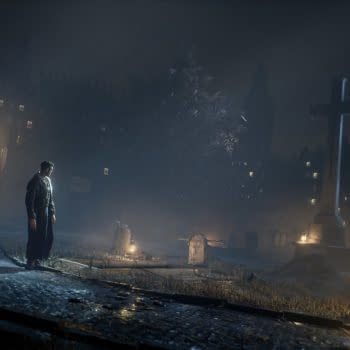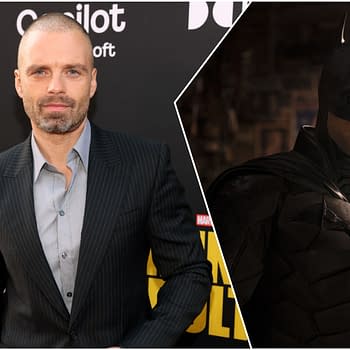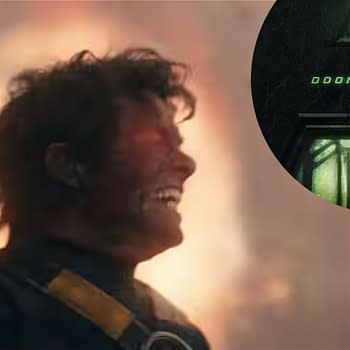Posted in: Movies | Tagged: adi tantimedh, Crouching Tiger, crouching tiger hidden dragon: sword of destiny, entertainment, film, look it moves
Crouching Tiger, Hidden Dragon: Sword of Destiny's Generic Genre Thrills – Look! It Moves! By Adi Tantimedh
Adi Tantimedh writes,

Ang Lee, who poured his love of the Wuxia genre into every frame, adapting one book from the multiple-volume epic by Wang Du Lu whose story spans several generations of martial artists and heroic swordsmen and women. He worked closely with martial arts choreographer Yuen Woo Ping to integrate story and characterization into the fights, which, frankly, is what martial arts movies from Hong Kong always did. To a Chinese person used to martial arts movies, this wasn't anything new, just given a classy international arthouse gloss. For Western highbrow and snobby audiences, this was new and exotic. You shouldn't be surprised that Hong Kong was the only market where the movie was not a massive hit, since that type of movie was old hat after decades of them produced and released at a steady stream since the Shaw Brothers days of the 1950s and 1970s through Tsui Hark and even Wong Jing's output throughout the 1990s and early 2000s.
This sequel is a movie made for the most cynical, money-driven reasons. It's the same for every sequel produced by executives without the input of the original producers and directors. It's all about money and franchises. It lacks the passion and care that the script of the first movie had. It has almost nothing from Wang Du Lu's original novels, and they even had the gall to publish a novelization of this sequel. I have no idea who in their right mind would want to read it. It's one of the more depressing reasons for killing trees I've heard about this week. Michelle Yeoh, Donnie Yen and the actors give it their all, because that's the professional pride and ethics of actors, and Yuen Woo Ping's choreography is as elaborate and inventive as ever, but the script is utterly generic. The movie depends entirely on Michelle Yeoh's air of authoritative melancholy to ground it emotionally but that just makes it dour and stoic. Donnie Yen shows signs of joy and playfulness in the tavern brawl, which has moments of wit and comedy, but isn't anywhere as eye-catching as the one Zhang Ziyi had in the first movie. Natasha Lui Bordizzo and Harry Shum Jr. do their best as the younger martial artists in place of Zhang Ziyi and Chang Chen, but their characters are thinner and less developed or nuanced, stuck in two dimensions. This is a B movie to the first movie's AAA blockbuster status.
While Sword of Destiny has gotten critically panned nearly across the board, it's really no worse or better than the majority of Hong Kong Wuxia movies from the 80s or 90s. That's perhaps its biggest problem: it's utterly generic. The only difference is it has a script by a Hollywood screenwriter and is better-paced than the worst movies in the genre. It's a perfectly ordinary Wuxia movie, nothing new or special or unexpected.
If you watch it, here's some major advice: DO NOT WATCH IT IN ENGLISH. Watch it in Chinese with subtitles instead. The English dialogue is stiff, faux-portentous and damn-near unbearable. It's worse than the cheesiest superhero comic book dialogue you've ever encountered. In Chinese, they seem to have hired a seasoned scriptwriter in Hong Kong to write proper period classical Chinese dialogue, full of slang, poetry allusions and rhyme of period dialogue that sounds classy but means nothing to non-Mandarin speakers, but at least you can imagine what they're saying is deep and profound while the clunky English subtitles miss entire layers of meaning in translation. That's always been part fo the experience of watching martial arts movies for those of us who refuse to sit through terrible English dubbing and dialogue anyway.
So should you watch this movie? HELL YES. If you already have a Netflix account, you've already paid for it, and very cheaply. See it if you love Wuxia movies. See it because this is probably Michelle Yeoh and Donnie Yen's last Wuxia movie. See it because Yuen Woo Ping is in his 80s and still creating elaborate fights with wit and style. He's been directing and choreographing Wuxia and martial arts movies since the 1960s, for Show Brothers movies in through the 1970s, for Tsui Hark and various directors throughout the 1980s and 1990s, for Ang Lee's original Crouching Tiger, Hidden Dragon, for The Matrix Trilogy. He's still unparalleled in the world of martial arts choreography. His style combining Wushu, swordplay and wire-fu is unique and instantly recognizable from the choreography of other, equally spectacular choreographers like Sammo Hung. The script of Crouching Tiger, Hidden Dragon: Sword of Destiny may be phoned in, but martial artist actors and fight choreographers, and the stunt team, never, ever phone it in. They give it their all, risking life and limb for a few minutes of beauty, for that sudden, unexpected second of human ingenuity that takes your breath away. Just yawn through the run-of-the-mill story and just watch the dance of swords and fights. That's what keeps Kung Fu movies alive.
Missing wires, but full of swords at lookitmoves@gmail.com
Follow the official LOOK! IT MOVES! twitter feed at
http://twitter.com/lookitmoves for thoughts and snark on media and pop culture, stuff for future columns and stuff I may never spend a whole column writing about.
Look! It Moves! © Adisakdi Tantimedh



